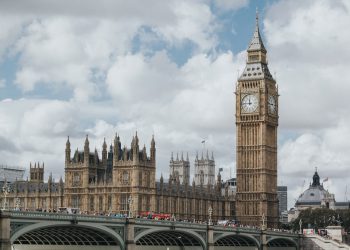[elementor-template id=”3753″]
This is dummy title and will be replaced with real title of your post
Image with size : 1140×570
Image: unsplash.com
Spain will be the first EU country to receive help from the bloc’s pandemic recovery fund, which was established to counteract the economic effects of COVID-19, after the European Commission approved the payment of the country’s first €10 billion instalment.
“Spain has made sufficient progress in the implementation of its national plan for #NextGenerationEU. Therefore, it will be the first EU country to receive a payment, worth €10 billion, once the other Member States authorise it,” tweeted Ursula von der Leyen, European Commission president.
“I congratulate Spain for successfully meeting the first 52 milestones and objectives set out in its recovery plan,” added Commission Vice President Valdis Dombrovskis.
These 52 milestones encompass a slew of policies and changes implemented by Madrid in order to qualify for the money. They are primarily concerned with taxation, labor regulation, economic decarbonization, and digitisation of government administration.
After Italy, Spain is expected to be the second-largest beneficiary of the EU recovery fund. Madrid is set to get €70 billion in direct help from the recovery plan.
However, further improvements are necessary in order to obtain the next tranche, including adjustments to the pension and tax systems.
There was no proposal filed.
Only the Netherlands has yet to submit its so-called Recovery and Resilience Plan.
It must propose its economic reforms plan, as did the other 26 EU members, in order to obtain the nearly €6 billion it seeks.
Ironically, the Netherlands insisted on this stipulation during discussions for pandemic recovery money in order to compel Southern European nations to implement structural reforms.
However, the Dutch caretaker government, which has been unable to pass its own national plan, may have fallen into its own trap, since the European Commission has requested a series of budgetary measures, including the elimination of a number of tax exemptions for mortgages and self-employed people.
Approval is still pending.
Hungary, Poland, Bulgaria, and Sweden have all yet to receive approval for their Recovery and Resilience plans.
The major reason for the delay in Bulgaria has been the change of administration: the government of former Prime Minister Boyko Borissov had already begun working on the plan.
However, the caretaker administration only submitted it on October 15, apparently due to disagreements about coal phase-out dates.
The NextGenerationEU fund, which was approved by the European Council in July of last year, has a total value of €750 billion and will run from 2021 to 2023.
Source: euronews.com
Related Posts
edit post

Updates
Spain will be the first to get EU pandemic recovery money
edit post

Updates
Belarus places sanctions against airlines on EU and UK
edit post

Immigration
UK firms ‘shocked’ by the migration slowdown
edit post

HR
Europe skills shortage proved by the German dilemma
edit post

Relocation
London: top destination for tech workers
edit post

Taxation